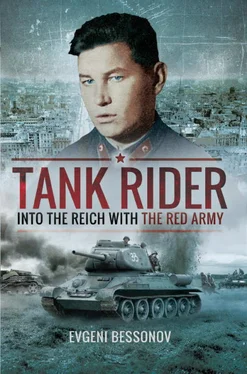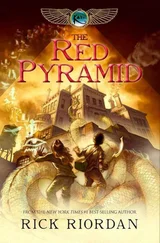There were three wooden buildings in our yard, two of them were available for a rather high rent, and the landlady with her family occupied the third one. A carriage shed with stables was adjacent to the landlady’s building. All the buildings were one storey high, heated by stoves, without running water or plumbing, so we had to get water in the street from a water pump. The landlady had a fruit garden in the yard with apple and cherry trees, raspberry and gooseberry bushes.
After the October Revolution they took all three houses from the landlady and father started to pay significantly less for the two twelvesquare-metre rooms that we occupied. We had to share our kitchen with neighbours, who also had two rooms. A Russian stove heated our two rooms and one of the neighbour’s rooms. In wintertime the temperature would drop to 13–15 degrees Celsius by morning.
Dinner, or food in general, was heated on kerosene heaters and Primus stoves; we also used these devices to boil water for tea, as the main stove and the oven were only stoked once a day. They only installed gas in the building after the Great Patriotic War and the wood oven was only then replaced by a gas oven. Other conveniences, or rather inconveniences, remained the same.
I should say that they only installed electric lights in our street in 1935 or 1936 and that the street had been illuminated by gas lamps until then. Every evening a special worker would walk around the street and light the lamps and put them out in the morning. He carried a special ladder with him for this purpose, and the lamp-posts had a special crossbar to rest it on.
Until the mid-1930s our neighbourhood was a haunt for thieves and hooligans and we even had famous thieves living in our yard. Between 1936 and 1938 measures were taken, they all went to jail and our neighbourhood became quiet.
Recalling our life before 1941, I think that our family had a modest life. We had a Singer sewing machine, and our mother made all our clothes for us with the help of this machine. Clothes were passed on from one sister to another, and even I received some things adapted from my sisters’ clothes. Our furniture was quite simple, for besides the sewing machine we had a wall clock, a chest of drawers, an old wardrobe, two metallic beds, two chests that we children used as beds, chairs and a bookshelf with some books.
It was cramped: sometimes I had a hard time finding somewhere to do my homework. For some time my sister Lelya even had to sleep on the table, which was, fortunately quite large.
In every room in the place of honour there were three icons with lampstands; grandmother lit them up quite frequently. After Lelya and Galya entered Komsomol (the common name for VLKSM, the All-Union Lenin’s Communistic Union of Youth) in 1933, my father took the icons down and hid them, leaving just one icon in the kitchen for our grandmother.
On holidays, sometimes on Sundays, we would bake pirogi , pastries, jam patties, and sometimes a pirog with a jam or meat filling ( pirogi are small pies, a pirog here refers to a large one for the whole family – translator’s comment) . For New Year our father would buy a New Year tree, decorate it with toys, candles which we lit in the evening and sweets if we had them. At Easter, my mother and grandmother baked two Easter cakes; sometimes they went to the church to sanctify them; they would leave early and then stay there for a very long time. My father rarely invited guests – his friends with their wives, sometimes with children. Mother’s friend, aunt Shura, her former classmate, would come to visit her sometimes.
Before leaving for school for the first shift (as there was a lack of schools, some of them had to organize teaching in two shifts – the first one in the morning and the second one in the evening), we had tea and bread with butter if we had it; we did not have any hot meal. After coming back from school we had soup or schi (traditional Russian soup; the main ingredient is cabbage – translator’s comment) for the first course; for the second course we had potatoes, pasta, millet porridge or buckwheat porridge, sometimes we had fried cutlets or fish. In the evenings we had tea with bread, very rarely we had sausage. We had free breakfasts at school.
On Sundays we went with friends to watch films for children at a cinema or to the Markov club or the ‘3rd International’ cinema next to Bumanskaya Metro station. The Markov club was next to the school where I studied, on Bolshaya Pochtovaya street.
I went to the parades on Red Square on a regular basis on 1 May and 7 November, together with our school or with the workers from the factory where our neighbour Sergei Glazkov, a highly professional turner, worked. I liked going to parades – it was fun, people were dressed in festive clothes, sang songs, danced, orchestras played music everywhere and children received gifts from the factories (sweets, cookies and soft drinks).
Until the age of 13 or 14 I was a sickly and thin child. I would fall sick very often, I had scarlet fever, measles, pneumonia and inflammation of my middle ear. I was shy, I was often lost when I had to answer in class, I could not always express my thoughts properly. First I had trouble with mathematics, then I got it sorted out, but I never learned to write properly – my writing has always been full of mistakes. In order to improve my health I started to do sports: athletics, cross-country skiing, soccer and volleyball. We had high jump and long jump competitions. For two years I was in the wrestling section at Lokomotiv stadium, at the same place where I lifted weights in order to strengthen my muscles. In the school we boys jumped over the vaulting horse and did some exercises on the horizontal bar. Sports did me good, for I became stronger physically and illness left me alone. In the 10th grade I was the school’s best high jumper, together with my classmates Fakin and Zolotukhin. I took part in the district-level ski race, but did not achieve any outstanding success, the same with wrestling. When I was called up to the army in September 1941, I was 180 cm high and weighted 70 kilograms, which was a normal combination for an 18 year old boy. Sports helped me to take the physical stress in army life and at the front. Later, in the army, I discovered a talent for shooting small-arms, especially pistols.
I was not too brave and so I got into fights very rarely; not only because I did not know how to fight, but also because of my character – I felt bad hitting someone in the face, especially a friend. I was never angry with anyone, unlike some other boys. A couple of times I was hit and just could not bring myself to hit back.
I think I was the last one in our class to join Komsomol. That was as late as 1939. I was a Pioneer in junior classes, so I had my red tie before I entered (the Young Pioneers was a youth organization for 10- to 15-year-olds, highly ideological in character with aims of educating children about the Soviet state, the history of the Communist party, etc. – translator’s comment) .
When our 341st school joined the trade school in December 1940 we were transferred to the 350th school on Bolshaya Pochtovaya street, the Komsomol organization elected me the chairman of voluntary Osoviakhim society (renamed DOSAAF after the war) (this was the Society for the Promotion of Aviation and Defence against Chemicals. It was an educational organization in the USSR in the 1930s, providing a basic military education along with training in defence against chemicals – translator’s comment) . I would not say that this organization did a lot of activities in the school, but there were sometimes shooting competitions, which were especially important; we arranged hiking trips in gas-masks; sometimes even classes and other activities were done in gas-masks. My best friends in the street at that time were Vladimir Dolmatov, Petr Hromyshev, Lev Kolyhalov (killed in 1942) and Yevgeni Bogolyubski (missing in action). Later my best friends in my class were Alexander Fokin (killed in 1943) and Andrey Otryganiev (became a Lieutenant Colonel and died in 1957 at the age of 35). We all lived close to our school, we had common views and areas of interest, we were all tall and athletic guys and attained similar results in our studies.
Читать дальше












